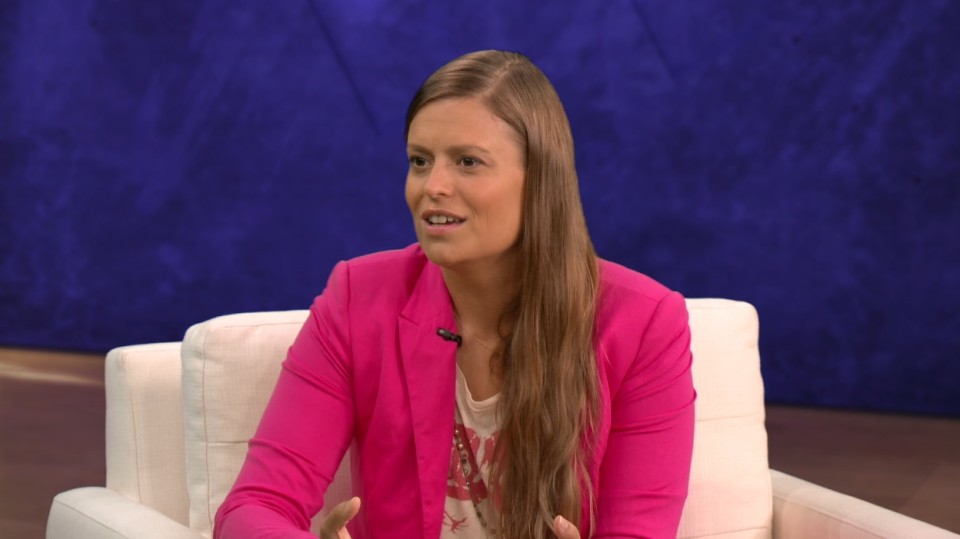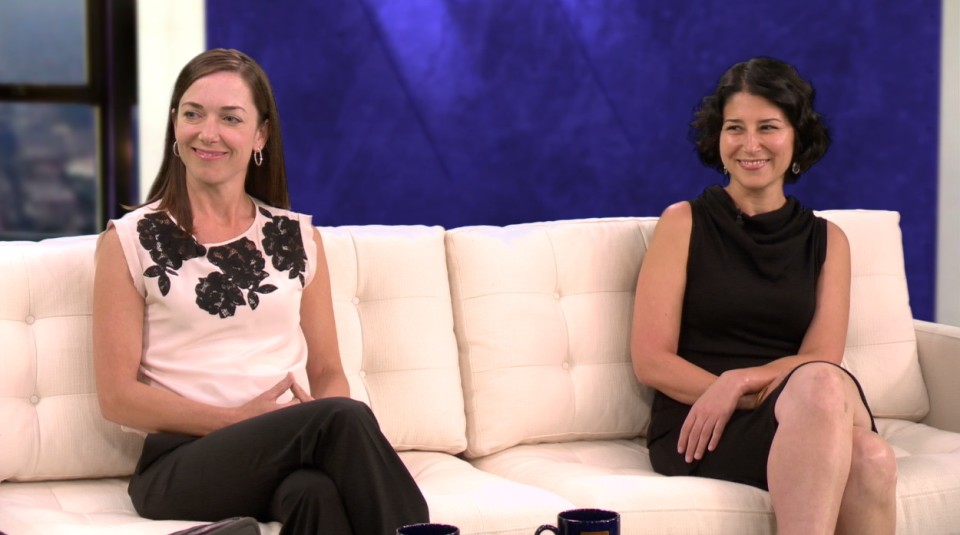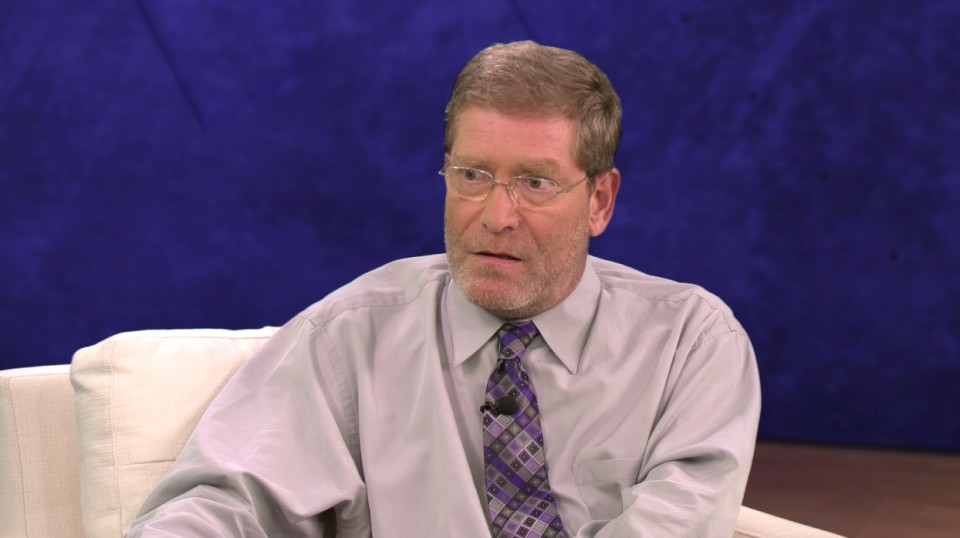Illnesses can sometimes run in families. Inherited genetic mutations can increase a person’s risk of developing different diseases – from cancer to mental disorders. But now, relatively new genetic testing is changing the way these illnesses are diagnosed and treated.
This week on Full Frame, we’ll meet some of the top doctors at the forefront of medical research along with patients who are struggling with the decision about whether or not to get tested.
Marianna Palka: Facing fear

Marianna Palka discusses her film, her family, and Huntington’s Disease.
To know or not to know? For Scottish‐born actress and filmmaker Marianna Palka, that was the question. After watching her father deteriorate in the throes of Huntington’s Disease, she made the brave and life‐altering decision to undergo testing to see if she too inherited the incurable degenerative disorder. In the award‐winning short documentary, “The Lion’s Mouth Opens,” Palka discusses her fears with her closest friends.
With a 50‐50 chance of losing functionality of her body and mind to the generic disorder, Palka chose to make her journey public in the hope that she could raise awareness and increase research about the incurable illness. The title of the film is a fragment from Bob Dylan’s poem written about Woody Guthrie and his battle with Huntington’s Disease. The film has garnered worldwide praise and raised more than $100,000 towards hereditary disease research.
Marianna Palka joins Mike Walter in our Los Angeles studio to discuss the film, her family, and what she learned about herself and others during this life‐changing chapter.
‘The Angelina Jolie effect’: Genetic testing for breast and ovarian cancer

UCLA’s director of the Breast Oncology Program, Dr. Sara Hurvitz and UCLA gynecologic cancer surgeon Dr. Sanaz Memarzadeh discuss genetic testing for ovarian and breast cancer.
In 2013, Hollywood actress Angelina Jolie made headlines after revealing she had genetic testing that showed she was at a high risk of breast and ovarian cancer. The mother of six became part of a medical trend…and decided to have both breasts removed in an effort to reduce the risk of cancer. Since then she’s also had her ovaries and fallopian tubes removed.
In the past decade, doctors are seeing more and more women, who, like Jolie, have a genetic mutation, choosing to remove healthy breasts instead of having breast‐conserving surgeries, even though both procedures offer the same odds of survival. Is this a good thing?
UCLA’s director of the Breast Oncology Program, Dr. Sara Hurvitz and UCLA gynecologic cancer surgeon Dr. Sanaz Memarzadeh, who conducts extensive research on ovarian cancer, join Mike Walter in our Los Angeles studio to offer their insight.
Dr. Thomas Hofstra: Sickle cell disease, the silent killer

Dr. Thomas Hofstra discusses what’s new in the battle against this chronic blood disorder.
Sickle cell disease is a global public health issue affecting millions of people throughout the world. In the United States, it’s the most common inherited blood disorder, one in 400 infants, of African ancestry, is born affected. The World Health Organization estimates that roughly 5% of the world’s population carries a trait gene for blood disorders, mainly sickle cell disease. The percentage of people who are carriers of the gene is as high as 25% in some regions.
The condition often leads to severe and chronic pain attacks, bacterial infections, blood transfusions, strokes and sometimes death. But with new treatments, life expectancy for these patients can reach 50 years, sometimes longer. There are 12 NIH-funded sickle cell disease research centers in the U.S. and Children’s Hospital Los Angeles is one of them.
Dr. Thomas Hofstra is a Pediatric Hematologist affiliated with Children’s Hospital Los Angeles. He joins Mike Walter in our Los Angeles studio to discuss what’s new in the battle against this chronic blood disorder.
Kevin Briggs: The leap not taken

Kevin Briggs a crisis prevention expert has helped many people come off the ledge.
After the Nanjing Yangtze River Bridge in China, the Golden Gate Bridge, in San Francisco, is the second-most used suicide site in the world. But retired California Highway Patrol Sergeant Kevin Briggs is responsible for saving hundreds from taking that leap. From 1994 to 2013 Briggs patrolled the bridge and talked down strangers thinking of ending their lives.
Now, retired from his duties, he continues his work with his organization called “Pivotal Points.” Briggs says his purpose is to promote suicide prevention, around the globe, by teaching others how to persuade people to come off the ledge.
Connect with Kevin Briggs on Facebook
 CGTN America
CGTN America
